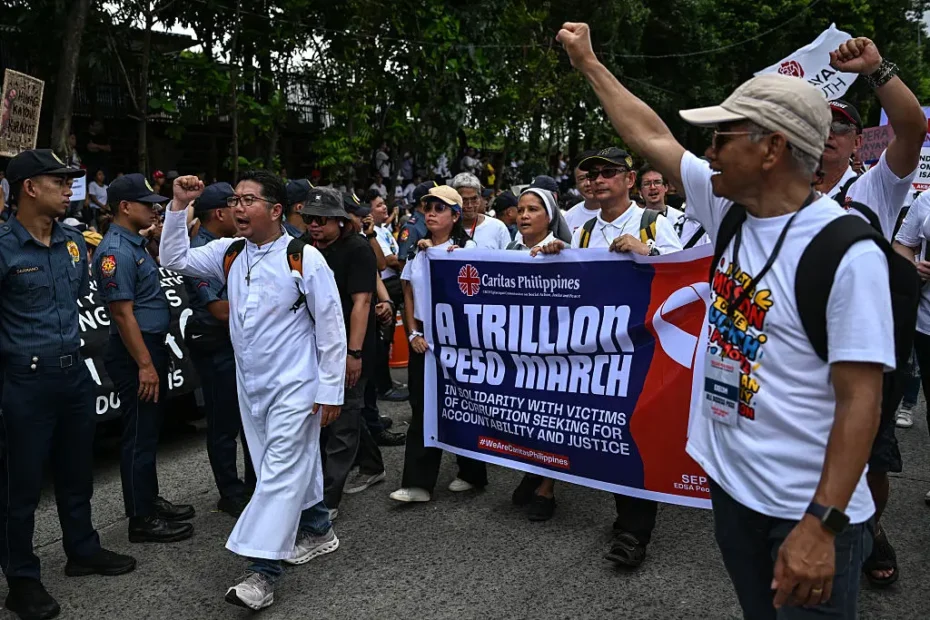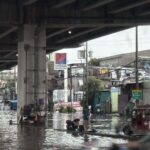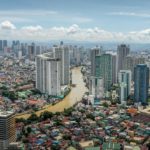DPWH Tightens Review of Flood Control Projects
Following the scandal, the DPWH has reportedly tightened its review and approval process for flood control and infrastructure projects. This stricter oversight is meant to prevent future misuse of funds, but it also means delays in project implementation. With fewer projects being approved, the flow of government spending—an important driver of economic activity—could slow down.
Impact on Investor Confidence and the Stock Market
For investors, corruption represents systemic risk. The Philippine stock market has shown heightened volatility in reaction to corruption news, as market players worry about political instability, reduced government spending, and the impact on infrastructure-related sectors.
Infrastructure and construction firms are most affected since they rely heavily on government contracts. With fewer flood control and public works projects being approved, earnings expectations are dampened.
-
Banking and financial services may also feel indirect effects as loan growth tied to government-backed projects slows down.
-
Foreign investors may grow cautious, preferring more politically stable markets in Southeast Asia.
Reduced Government Spending and Its Economic Ripple Effect
Government spending, particularly on infrastructure, has been one of the Philippines’ engines of growth. However, with the DPWH now extra cautious in budget approvals, there is a risk of lower fiscal stimulus. Reduced project rollout not only delays much-needed flood protection but also slows job creation and business activity in related industries.
This potential decline in government expenditure can weigh on the GDP outlook, which in turn affects long-term investor sentiment in the PSE.
If the corruption investigations lead to real accountability and reforms, investor trust could gradually return. On the other hand, repeated scandals without resolution reinforce negative perceptions of the Philippine market, creating a cycle of skepticism that depresses foreign inflows.
Corruption scandals don’t just damage reputation—they also have a ripple effect on the Philippine peso and inflation. When investor confidence drops due to political and governance issues, foreign funds often flow out of the country, putting downward pressure on the peso. A weaker peso increases the cost of imports, from fuel to essential goods, fueling inflation that directly affects Filipino households and businesses. This creates a cycle where corruption not only undermines long-term growth but also raises the cost of living for ordinary citizens, compounding economic challenges.
At the same time, the Philippines risks losing out to regional competitors like Vietnam, Indonesia, and Malaysia, which are making stronger strides in improving transparency and attracting foreign investment. While these neighbors strengthen their governance frameworks, corruption keeps the Philippines tagged as a high-risk investment destination. This means missed opportunities in manufacturing relocation, technology investments, and regional trade partnerships—sectors that could otherwise accelerate the Philippines’ transition to an upper middle-income economy.
The Philippine flood control corruption scandal highlights how governance issues directly translate into economic and financial risks. For the Philippine Stock Exchange, this means heightened volatility, reduced investor confidence, and weaker performance in sectors dependent on infrastructure spending. Unless corruption is addressed decisively, the market will continue to feel the weight of political scandals.
More importantly, corruption has long been a barrier preventing the Philippines from reaching its full economic potential. Despite strong fundamentals and a young workforce, persistent governance issues hold back the country’s aspiration to transition into an upper middle-income economy. Eliminating systemic corruption is not only about accountability—it is about unlocking growth and ensuring the Philippines takes its rightful place among Asia’s rising economies.
As former UN Secretary-General Kofi Annan once said:
“If corruption is a disease, transparency is an essential part of its treatment.”



